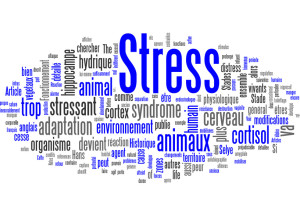Q:At a seminar you spoke at recently, you said that dieting increases our cortisol levels which makes us stop losing weight quickly. Can you explain that?

A:
When the body senses stress, it signals the adrenal glands to produce cortisol. Cortisol is our “stress hormone” which is produced in situations of fight or flight. Short term, burst of cortisol are great and help us to burn body fat like during intense exercise. It is when cortisol is chronically elevated that we develop a problem with weight loss. When cortisol levels are elevated for a longer duration of time (like during periods of caloric deprivation), the metabolism can actually slow as a response and even hold onto weight around the belly.
It is important during the process of weight loss to make calorie cuts carefully and in a way that the body does not perceive as starvation. Adding whole, filling foods into the diet like low glycemic vegetables and lean protein is a great way to do that. When you first start on a weight loss plan, aim to decrease calories by only 100-200 daily calories per week until you reach a level where you are losing instead of jumping right onto a restrictive plan (which you likely will not stick to anyway).
Sleep helps to moderate cortisol levels as well, so make sure you are getting 7-9 hours per night. Set a bedtime and stick with it. Sleep adds an easy element to weight loss as it has nothing to do with food, calories or exercise. You just have to sleep more!
Lastly, engage in a moderate exercise program (instead of intense and long every day). Over-exercising (more than 45 minutes) can cause cortisol levels to be elevated more than you want for weight loss and can get in the way of your progress. Set a goal of 2-3 days a week of moderate weight training with some cardio in between for best results. Most people think that exercising a lot is good, but not necessarily.